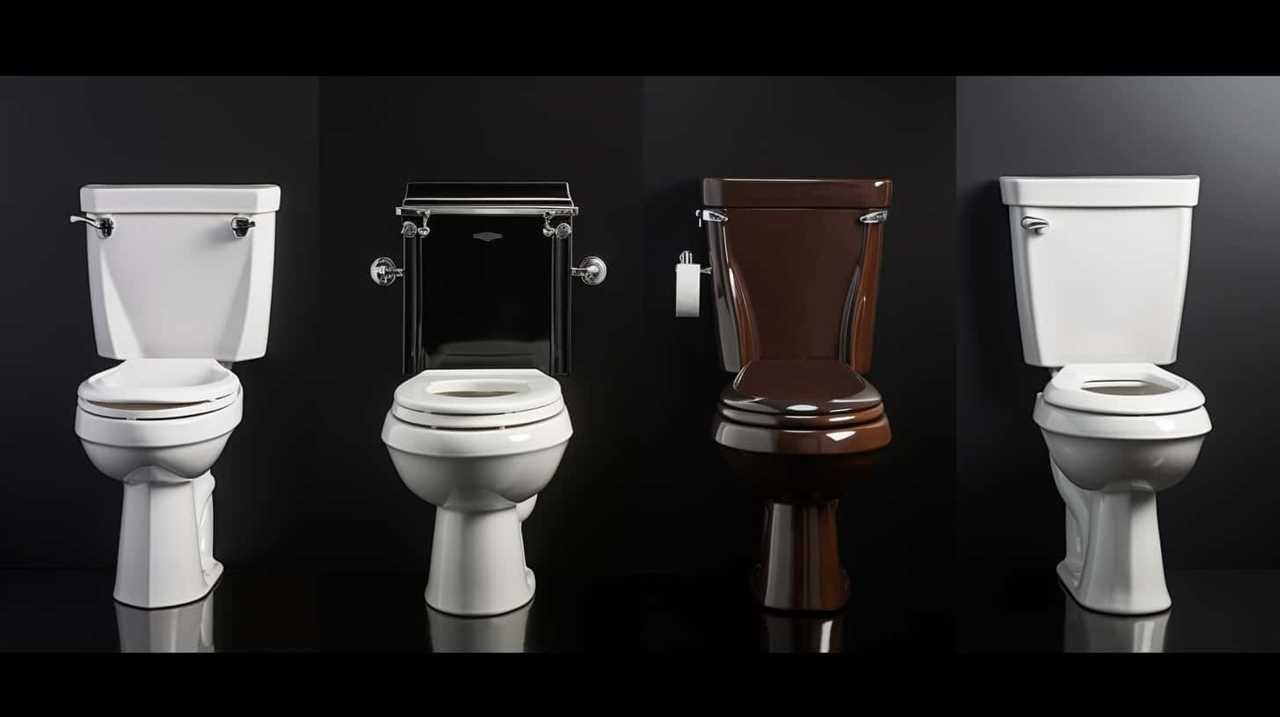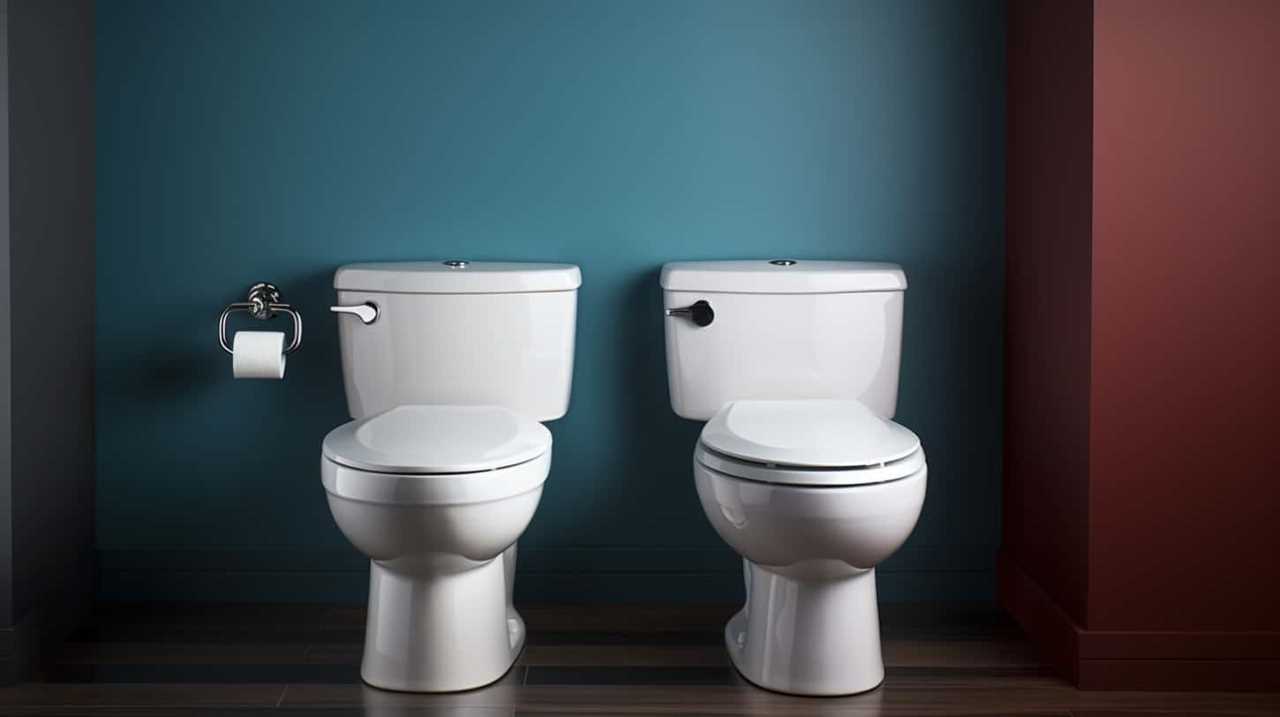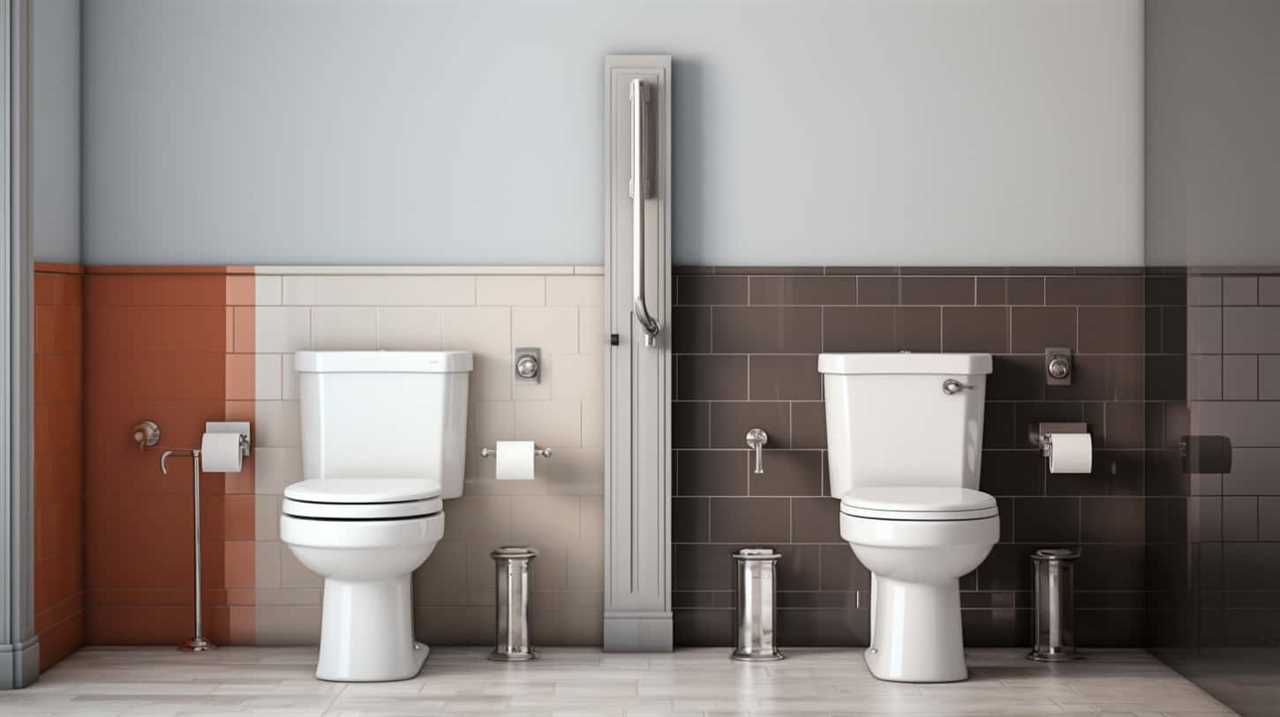We’ve all experienced it – dealing with the smelly issue of managing our furry companion’s waste.
But fear not, because in this article, we’ll guide you through the art of disposing of dog poop like a pro.
From local regulations and bagging methods to eco-friendly options and public spaces, we’ve got you covered.
So grab your scoop and join us on this journey to poop mastery.

It’s time to take care of business, the right way.
Key Takeaways
- Understand and comply with local regulations for dog waste disposal.
- Use biodegradable bags that break down naturally over time.
- Utilize community dog waste stations with bags and bins.
- Raise awareness about the importance of cleaning up after dogs and responsible pet ownership.
Local Regulations and Guidelines
- We’ll now discuss the local regulations and guidelines for disposing of dog poop. It’s important to understand and comply with these regulations to ensure proper waste management and maintain a clean and healthy environment for all. Each locality may have different rules regarding the disposal of dog waste, so it’s crucial to familiarize yourself with the specific regulations in your area.
Some common regulations include picking up after your dog and properly bagging the waste before disposal. Many localities also require dog owners to dispose of the waste in designated bins or areas. Additionally, some areas may have specific guidelines for composting or flushing dog waste. Understanding and following these regulations will help in maintaining a safe and clean community.
Now, let’s move on to the next section, which discusses various bagging and sealing methods for dog poop disposal.
Bagging and Sealing Methods
Now let’s explore our options for bagging and sealing dog poop to ensure proper disposal and hygiene. When it comes to bagging dog poop, there are several choices available. One option is to use biodegradable bags, which are designed to break down naturally over time. These bags are environmentally friendly and can be composted along with the poop. Another option is to use regular plastic bags, but it’s important to note that these bags do not break down as easily and may contribute to landfill waste. Whichever type of bag you choose, make sure to seal it tightly to prevent any leakage or odors. Here is a helpful table summarizing the different bagging and sealing methods:

| Bag Type | Pros | Cons |
|---|---|---|
| Biodegradable bags | Environmentally friendly, compostable | May be more expensive than regular plastic bags |
| Regular plastic bags | Easily available, affordable | Not environmentally friendly, do not break down easily |
Proper Disposal Options
To continue the discussion on proper disposal options, let’s explore the various methods available for us to dispose of dog poop responsibly and hygienically. Here are three options to consider:
- Community initiatives: Some neighborhoods have implemented community dog waste stations. These stations provide bags and bins specifically designed for dog waste disposal. By utilizing these stations, we can contribute to keeping our communities clean and free of dog waste.
- Backyard composting: If you have a backyard and a composting system, you can consider composting your dog’s poop. However, it’s important to note that not all composting methods are suitable for dog waste. Specialized systems that reach high temperatures are necessary to ensure the breakdown of any harmful bacteria. It’s essential to research and follow proper guidelines to ensure safety and effectiveness.
- Professional waste removal services: Another option is to hire professional waste removal services. These companies specialize in picking up and disposing of dog waste in an environmentally responsible manner. They’ve the necessary equipment and expertise to ensure proper disposal and reduce the risk of contamination.
Eco-Friendly Alternatives
Continuing with our exploration of proper disposal options, let’s now delve into eco-friendly alternatives for disposing of dog poop. When it comes to eco-friendly options, two key products stand out: compostable bags and biodegradable poop scoopers.
Compostable bags are a great alternative to traditional plastic bags. Made from plant-based materials, these bags break down naturally, reducing their environmental impact. Simply scoop the poop into the bag, tie it up, and toss it into your compost bin. Over time, the bag and its contents will decompose, enriching the soil with nutrients.
Biodegradable poop scoopers are another eco-friendly option. These scoopers are typically made from materials like bamboo or cornstarch, which can break down naturally. They provide a sustainable alternative to plastic scoopers, reducing waste and minimizing harm to the environment.

By using compostable bags and biodegradable poop scoopers, we can make a conscious effort to reduce our carbon footprint and contribute to a cleaner, greener world.
Now that we’ve covered eco-friendly alternatives, let’s move on to the next section: dealing with dog poop in public spaces.
Dealing With Dog Poop in Public Spaces
When it comes to dealing with dog poop in public spaces, we can take responsibility by using designated waste bins and practicing proper cleanup etiquette. It’s crucial to keep our public spaces clean and safe for everyone to enjoy.
Here are some practical ways to deal with dog poop in public areas:

- Utilize pet waste stations: These stations are specifically designed for pet owners to dispose of their dog’s waste. They usually provide bags and waste bins for easy cleanup. Look out for these stations in parks, sidewalks, and other public areas.
- Community education: It’s essential to educate the community about the importance of cleaning up after their dogs. Through awareness campaigns and educational programs, we can teach responsible pet ownership and the negative impacts of leaving dog poop in public spaces.
- Lead by example: As responsible pet owners, let’s set a good example by promptly cleaning up after our dogs. Carry waste bags with you whenever you go out with your furry friend and dispose of the waste properly in designated bins.
Frequently Asked Questions
Are There Any Health Risks Associated With Dog Poop?
There are health risks associated with dog poop, such as water contamination and parasitic infections. It is important to handle and dispose of dog poop properly to prevent these risks and protect our health.
Can I Flush Dog Poop Down the Toilet?
Sure, we can flush dog poop down the toilet, but it’s not the best idea. Flushing can have a negative environmental impact. It’s better to scoop it up and dispose of it properly.
How Often Should I Clean up After My Dog?
We clean up after our dogs regularly to maintain a clean and hygienic environment. It’s important to use the best cleaning products and follow tips for efficient clean up, such as using a scooper and disposing of the waste properly.
Can I Compost Dog Poop?
Composting alternatives for dog poop are limited due to the potential environmental impact. However, there are other safe options available, such as using biodegradable bags and disposing of them in the trash.

What Are the Consequences of Not Properly Disposing of Dog Poop?
Not properly disposing of dog poop can have significant environmental impact. It can contaminate water sources, spread diseases, and harm wildlife. Additionally, there may be legal repercussions, such as fines, for not following proper waste disposal regulations.
Conclusion
In conclusion, it’s important to properly dispose of dog poop to maintain cleanliness and prevent the spread of diseases.
Did you know that according to a study by the Environmental Protection Agency, a single gram of dog waste can contain up to 23 million fecal coliform bacteria?
This statistic highlights the significance of responsible dog waste disposal and the potential health risks associated with neglecting this task.

Remember to always follow local regulations, bag and seal the waste, and choose eco-friendly disposal methods whenever possible.










